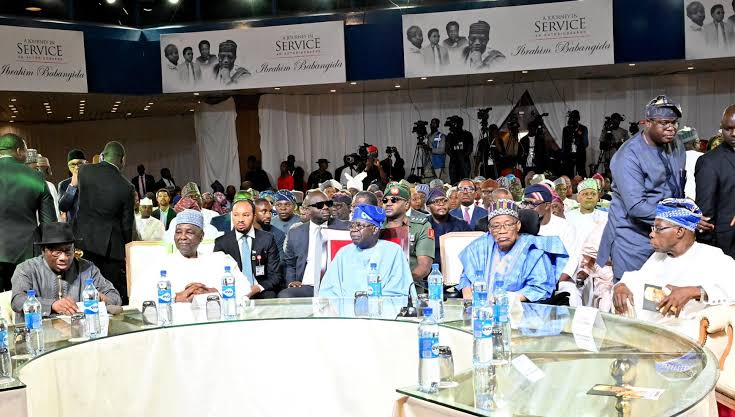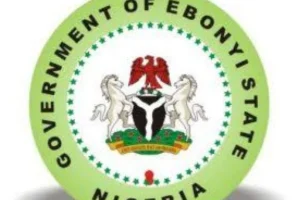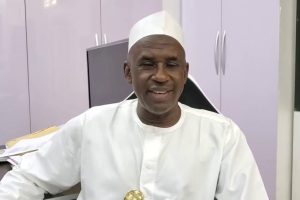
Former Nigerian military president, General Ibrahim Badamasi Babangida (IBB), has disclosed new details about the assassination of Major General Murtala Muhammed on February 13, 1976.
According to Babangida, Murtala’s refusal to accept a power-sharing arrangement after the 1975 coup that brought him to power played a significant role in the plot against him.
In his newly released autobiography, ‘A Journey in Service,’ Babangida recounts how Murtala’s insistence on absolute authority alienated some senior military officers, ultimately leading to the tragic events of February 13.
The 1975 Coup and the Push for Collective Leadership
Following the overthrow of General Yakubu Gowon in July 1975, key military officers gathered at Dodan Barracks to deliberate on the governance structure of the new regime.
Babangida reveals that younger senior officers, including Colonel M.I. Wushishi, Lt-Col Joe Garba, Lt-Col Abdullahi Mohammed, and Lt-Col Shehu Yar’Adua, attempted to persuade Murtala to lead a collective administration alongside Brigadiers Olusegun Obasanjo and Theophilus Danjuma.
However, the late Head of State firmly rejected the proposal, declaring that he would rule without external influence.
Murtala’s Firm Stance on Leadership
Describing the tense meeting, Babangida wrote:
“We were close enough to hear Murtala Muhammed’s thundering voice, outrightly rejecting the proposals for shared leadership. The meeting lasted past midnight. Finally, he agreed to be Head of State but insisted he would not share power.”
The very next day, Murtala swiftly consolidated his authority, announcing a wave of retirements and new appointments that reshaped Nigeria’s military and governance structure.
Major Reshuffle in the Military
Murtala’s regime implemented one of the largest purges in Nigerian history, retiring several top military officers, including:
- Vice-Admiral Joseph Wey (Chief of Staff, Supreme Headquarters)
- Major-General David Ejoor (Deputy Chief of Staff, Army)
- Major-General Adeyinka Adebayo
- T.A. Fagbola (Deputy Inspector-General of Police)
In their place, Murtala appointed:
- Brigadier Olusegun Obasanjo as Chief of Staff, Supreme Headquarters
- Brigadier Theophilus Danjuma as Chief of Army Staff
This aggressive restructuring of military leadership intensified discontent among officers who felt marginalized by the changes.
The Civil Service Purge: “We Overdid It” – IBB
Beyond the military reshuffle, Murtala’s government also dismissed thousands of civil servants in an attempt to eliminate corruption and inefficiency.
Babangida now admits that the 1975 mass sackings may have been excessive, acknowledging that some innocent officials were unfairly dismissed.
“Looking back now, I realize we probably overdid the retirement exercise. Some civil servants may have been victims of an unfair witch-hunt,” Babangida reflected in his book.
Although the intent was to reform governance, the sweeping purge left lasting consequences on Nigeria’s public service structure.
Murtala’s Legacy: State Creation and Civilian Transition Plan
Despite the controversy surrounding the retirements, Murtala initiated key reforms, including:
- Fast-tracking Nigeria’s transition to civilian rule by setting October 1, 1979, as the target date for democratic governance.
- Implementing the recommendations of the Justice Ayo Irikefe panel to create seven new states, including:
- Ogun and Ondo (from the former Western State)
- Anambra and Imo (from the old East-Central State)
- Benue (from Benue-Plateau)
- Bauchi and Niger (from the North)
Babangida disclosed that the selection of Minna as the capital of Niger State was controversial, as the initial recommendation favored Bida.
“Murtala, with his characteristic decisiveness, put his thumbs up for Minna over Bida,” he recalled.
Bold Foreign Policy and African Influence
Murtala’s foreign policy approach was bold and anti-colonial, particularly his unwavering support for the People’s Movement for the Liberation of Angola (MPLA) against Western-backed factions.
His strong stance against Western interference, including opposition to U.S. President Gerald Ford, further solidified his reputation as an independent and fearless leader.
Despite being in office for only six months, Murtala won public admiration for his policies and no-nonsense governance style. However, his firm and uncompromising leadership made him a target for opposition within the military.
The Assassination of Murtala Muhammed
On February 13, 1976, Murtala was assassinated in a failed coup led by Lt-Col Buka Suka Dimka. The coup attempt, fueled by resentment within the military, ended in failure, and those responsible were later arrested and executed.
Babangida’s revelations provide new insights into the political tensions, leadership struggles, and governance decisions that shaped Murtala’s short-lived but impactful administration.
Conclusion
Murtala Muhammed remains one of Nigeria’s most influential and controversial leaders, remembered for his decisive leadership, anti-corruption stance, and strong foreign policy. While his tenure was brief, his policies set the foundation for Nigeria’s transition to democracy and state restructuring.
IBB’s autobiography sheds new light on the power struggles behind Murtala’s assassination, adding depth to Nigeria’s political history.





